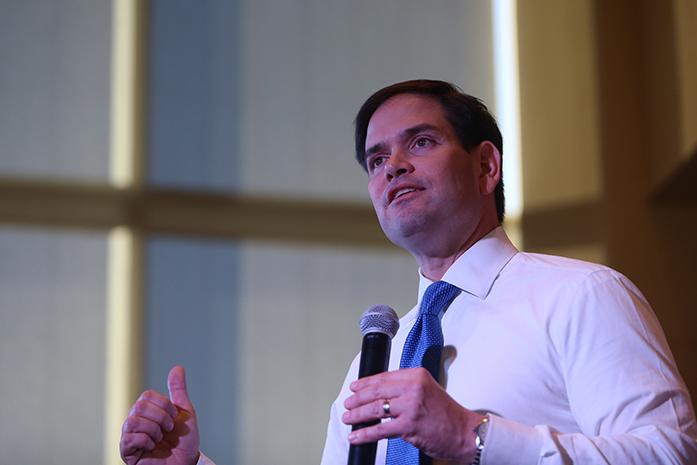Jace Brady
[email protected]
On Feb 20, Democrats in Nevada and Republicans in South Carolina helped clarify the direction of the primary race. Though the results were fairly close to predictions, the minor differences have drastically changed the viability of several candidates and solidified the inevitability of others.
Polls heading into Nevada’s Democratic Party caucuses were few and far between, yet they all pointed toward an incredibly close race. Many thought that Sen. Bernie Sanders, I-Vt., would be able to surge to a victory, which would have been a devastating blow to the Hillary Clinton campaign. It was in this same state that a 2008 loss to then Sen. Barack Obama began the demise of Clinton, the inevitable candidate 1.0.
The 2016 outcome was much better for Clinton. While she certainly did not run away with the race, she won by a comfortable 5-point margin. As we head into much friendlier territory in the upcoming weeks for the former Secretary of State, it is possible she could have the nomination wrapped up before the Vermont senator has a chance to head northeast to collect some much needed delegates.
Though the Nevada results clarified the Democraticrace, the Republican nomination is still not pellucid. The early favorite, Jeb Bush, left the race after a weak bottom-three finish. This suggests that the establishment wing of the party has begun to coalesce around Sen. Marco Rubio. However, Gov. John Kasich has not given any indications he plans to leave the race, and his 8 percent share of the vote could seriously hamper Rubio’s chances at the nomination.
Donald Trump demonstrated two things on Feb. 20. First, he has serious staying power and broad appeal, after winning both New Hampshire and South Carolina. More importantly, he proved that he has a very solid ceiling that hovers around 33 percent of the vote. Despite several candidates dropping out, he failed to outperform his results in New Hampshire or longtime polling averages.
Finally and tragically, South Carolina proved that it may be time for Sen. Ted Cruz to leave the race. While he is likely to hold on through Super Tuesday, where he will amass some delegates, his Southern strategy is obviously flawed. He was unable to pull out a win or even a close second-place finish in a state that is about as friendly as it gets for religiously conservative candidates. Finishing third means that Trump has dominated the evangelical vote and that Rubio is the preferred conservative alternative. As long as the obstinate Ben Carson continues to disgrace the electorate process with his use of the campaign trail as his personal book tour, Cruz’s chances look slim.
As one who opposes Trump more than I support any one candidate, it is time for Republicans to coalesce around the candidate who has the best chance of keeping him from the nomination. This candidate has clearly turned out to be Rubio. Kasich should be forced out by the party in exchange for serious consideration for the VP slot, Carson should be offered a show on Fox News to compensate for his incessant need to be heard saying nothing, and Cruz must realize that, though not as conservative as he is, Rubio is much more conservative than Trump. I normally do not advocate this sort of party intervening and moral compromising behavior, but when the alternative is as bad as Trump, it must be done.



